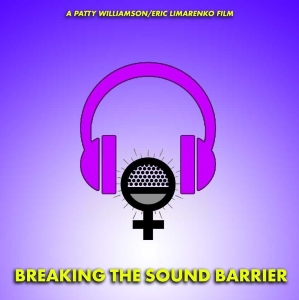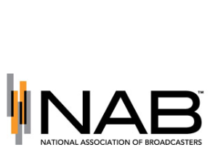
Historically, radio has been an industry dominated by men. Ownership, management, and on-air talent are all areas where the male prevails. Two Central Michigan University professors have started a conversation about women breaking barriers in our industry. Breaking The Sound Barrier is a documentary produced and directed by Eric Limarenko (MFA, The Savannah College of Art & Design), and Patty Williamson (PHD, Michigan State University) about the successes and roadblocks women have encountered in the industry. Dr. Williamson talked with Radio Ink about her debut film.
Radio Ink: What got you interested in doing this documentary?
Williamson: It started about two-and-a-half years ago with an idea I had to do some traditional research on women in radio. To look at what are the numbers, how many women are in radio, what are the ratios, and then doing some interviews with women to find out about their experiences working in the industry. Eric was there when we were having a meeting about this and he suggested that we make a documentary. He said, “Forget about it just being standard research. Let’s actually make it into something that people could watch and learn about successes for women in the industry and some of the roadblocks.”
Radio Ink: You are no stranger to radio, are you?
Williamson: I worked for about a decade in radio before I went back to school to earn my graduate degrees and started teaching. I had some personal experiences along the way that piqued my interest. Back when I was working in radio it was still a lot of mom-and-pop operations, it was just on the cusp of the big corporate moves into the radio industry. So I was wondering, now with the move toward larger owners of radio stations, whether things may have changed a little bit for women. Maybe there were more opportunities for women to move up, to make more money, to move into lead morning show positions.
Radio Ink: What did your research show you?
Williamson: We found that there has been some movement, women have been making some progress in the industry. Women are still being pigeonholed into morning side-kick roles and midday shifts. We heard stories of women having problems with upward mobility in the industry, gaining leadership roles. Overall there wasn’t the progress that I was hoping would have occurred in maybe the 20 years since I was working in the industry.
Since the documentary came out I’ve done some additional research and found that women only make up about a third of all on-air positions in the top 20 markets. If you break it down more, I found that women are sort of lumped together in those midday roles and co-host positions in morning drive; or they do weather, traffic, or news. In the morning, women are not seen as the marquee talent. Our research showed that only about 14 percent of morning shows in the the top 20 markets were led by women. To me, that’s pretty abysmal when you think about it.
Radio Ink: Has the switch from mom-and-pop to corporate-big-box radio been a help or hindrance for women?
Williamson: I don’t know that it has been any more of a hindrance then the mom-and-pop environment. It seems that some women are able to navigate the corporate environment, to be able to find success that way. But not that much of a difference. It’s one of those things that more people need to talk about it. I think a lot of women in the industry don’t want to talk about it because if they are working in the industry, not in a position of power — they are afraid to say anything for fear of losing their job.
We were doing our interviews just as the Me Too movement hit. Before Me Too, no one would talk about harassment and other issues on the record; but after, more women were willing to talk about it. Harassment is a problem in the industry, but not any more so than other industries.
Radio Ink: How has the response been to the film?
Williamson: It has been pretty positive. We have been able to show the film in several festivals across the country, including New York and Los Angeles. Some of the most positive response has come from women in the industry. We are hoping now that we have done most of the film festival circuit, we are going to cut it down to a slightly shorter version and try to distribute it in someway. Right now the film is about 78 minutes long and we would like to edit it down to just under an hour.
Radio Ink: What is your hope for this film?
Williamson: Ultimately, that it starts a conversation about the roles of women in the industry, about gender inequity. Whether it’s on-air or management roles, equal pay for equal work. One of the things the film has shown us is that a lot of women really didn’t know how they matched up in terms of pay to their male counterparts. The reason being because talking about salaries was discouraged.
Radio Ink: Do you miss being in radio?
Williamson: I sometimes miss it. I’d have to say doing this documentary, despite a lot of negative stories, there were some positive stories. Almost all the women we talked to just love their jobs in the industry and that made me a bit nostalgic. I’m lucky, though, that I love teaching and now I get to train the broadcasters of tomorrow.
For more information on Breaking The Sound Barrier, contact Dr. Patty Williamson.









